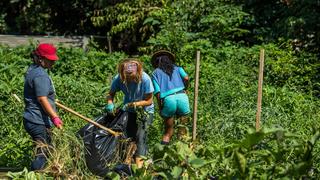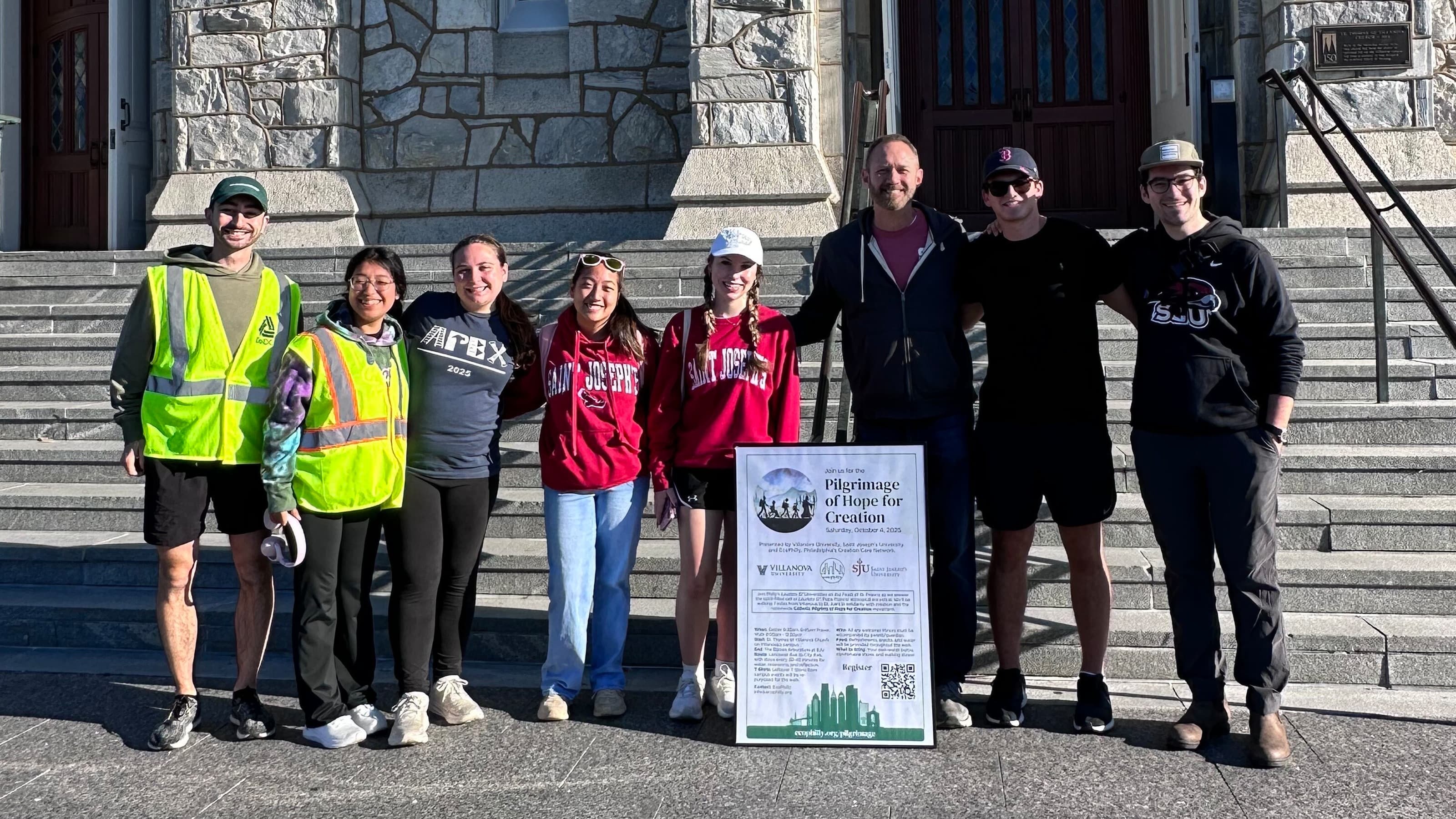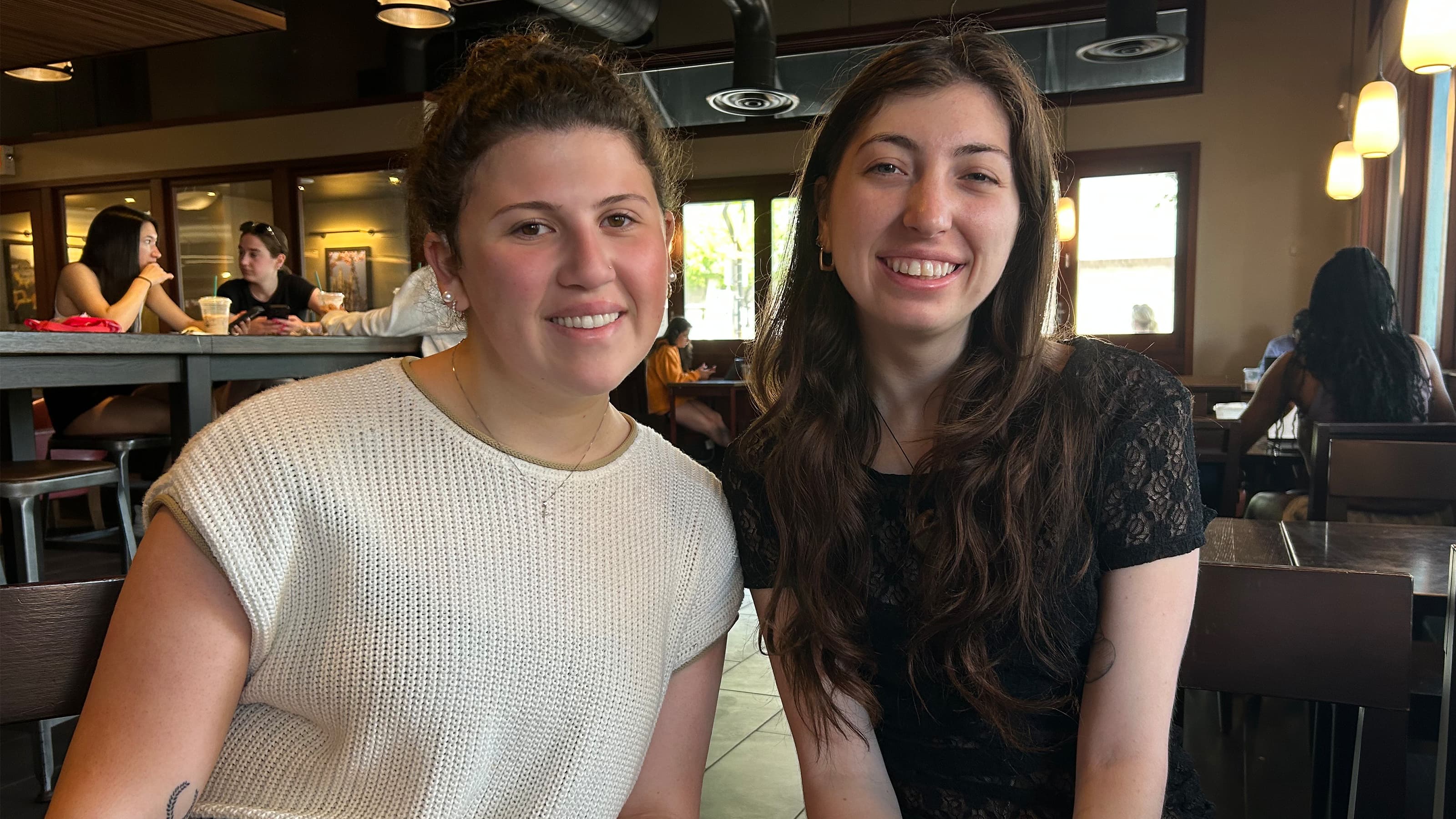‘A Better Tomorrow for All’: Saint Joseph’s Commits to Pope’s Laudato Si’ Sustainability Initiative to Protect Our Common Home
The seven-year Laudato Si’ journey will enact actionable and lasting environmental solutions.

Saint Joseph’s University has announced its commitment to a seven-year process to become designated by the Vatican as a Laudato Si’ University. Inspired by Pope Francis’ encyclical Laudato Si, “On Care for Our Common Home,” the Laudato Si’ initiative calls on Catholic and non-Catholic institutions worldwide to protect our common home with real and lasting solutions.
“Our selfishness, our indifference and our irresponsible lifestyles are threatening the future of our children,” the pope said in a video announcing the initiative. “So, I renew my appeal: Let’s take care of our Mother Earth. Let’s overcome the temptation of selfishness that makes us predators of resources. Let’s cultivate respect for the gifts of the Earth and creation. Let’s inaugurate a finally eco-sustainable lifestyle and society. We have the opportunity to prepare a better tomorrow for all.”
Saint Joseph’s University’s plan, the President’s Laudato Si’ Initiative on Sustainability and Stewardship, will focus on three main principles rooted in Jesuit values: environmental stewardship, social justice stewardship and cura personalis stewardship.
Environmental stewardship will strive to minimize the University’s environmental footprint through initiatives like energy conservation — including renewable energy sources such as the geothermal-powered Sister Thea Bowman Hall, opening in fall 2025 — sustainable practices, like waste reduction and water conservation; LEED-certified construction; and promoting green spaces on campus.
“As a Jesuit institution of higher education and as citizens of the world, we are called on to promote environmental justice and to be stewards of our common home,” President Cheryl A. McConnell, PhD, said in an announcement to the University community.
The two additional principles, social justice stewardship and cura personalis stewardship, go beyond the environment to focus on the interconnectedness of environmental and social justice issues, and recognize the environment as an integral part of human health for all, especially marginalized populations.
As a Jesuit institution of higher education and as citizens of the world, we are called on to promote environmental justice and to be stewards of our common home.
President Cheryl A. McConnell, PhD
Longtime Saint Joseph’s supporters, Brian Dooner, BS ’83, and Marlene Dooner, BA ‘83, are funding the University’s initiative, which will be led by a sustainability guiding coalition of faculty, staff and students, and chaired by Clint Springer, PhD, associate professor of biology, director of the Institute for Environmental Stewardship, and director of the Barnes Arboretum.
“Marlene and Brian see opportunities for Saint Joseph’s to make a difference. They take action through their philanthropy and their ideas, and the end result is powerful,” said Joseph Kender, senior vice president for university relations.
The President’s Laudato Si’ Initiative on Sustainability and Stewardship will include the identification of baseline and target sustainability areas, a sustainability plan framework, a leadership guidebook to contextualize key decisions and incorporate recommendations, and integration with the University’s strategic plan and core operations.
Following an inventory of the University’s current sustainability efforts, the initiative will narrow in on one or more of the Laudato Si’ Action Platform’s seven goals that are less attended to than others.
The goals include: Response to the Cry of the Earth (e.g., adoption of renewable energy, achieving carbon neutrality), Response to the Cry of the Poor (e.g., promoting solidarity and giving attention to vulnerable groups), Ecological Economics (e.g., sustainable production and consumption), Adoption of Sustainable Lifestyles (e.g., reducing waste and avoiding single-use items), Ecological Education (e.g., promoting human rights and ensuring equitable access to education), Ecological Spirituality (e.g., promoting creation-based liturgical celebrations) and Community Resilience and Empowerment (e.g., promoting advocacy and encouraging a sense of belonging).
“We are honored to support this critical initiative, which demonstrates Saint Joseph’s University’s ongoing commitment to guiding students to become critical thinkers, compassionate leaders, and agents of positive change in our increasingly complex and interconnected world,” said the Dooners.



